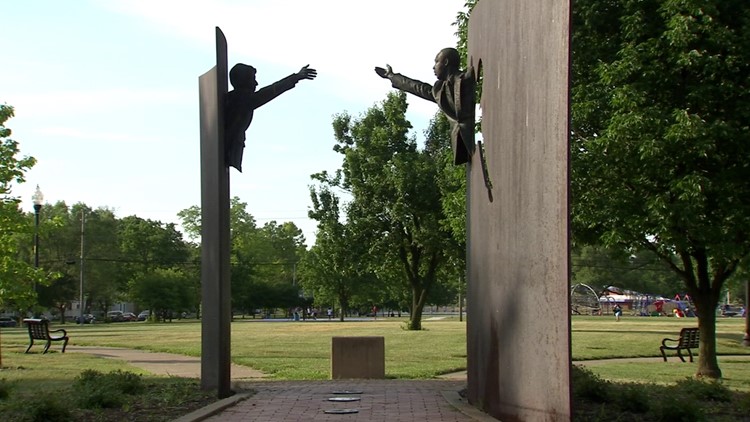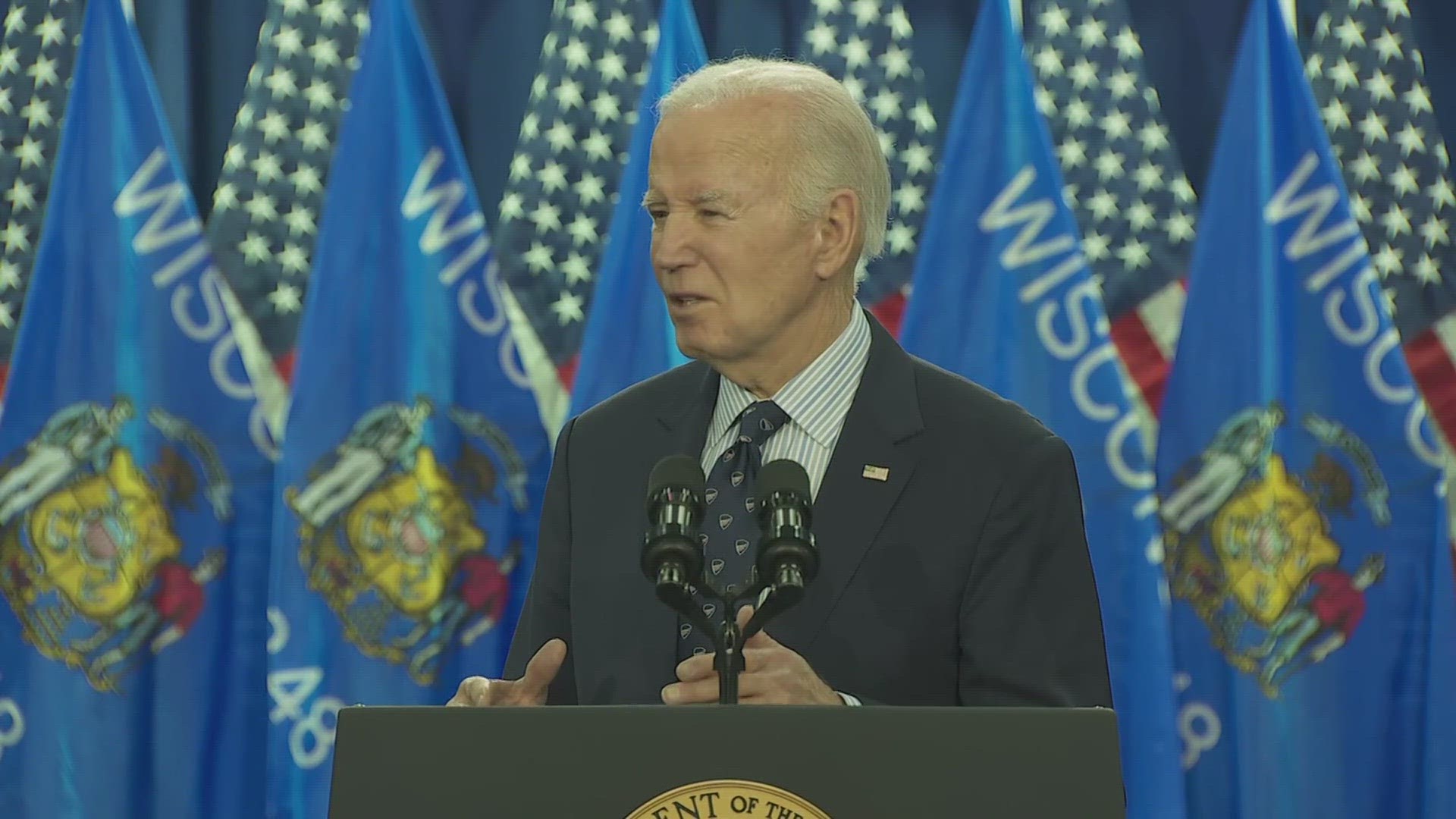INDIANAPOLIS — With the advent of war comes great prose. Just as May 1940 found Prime Minister Winston Churchill rallying his nation at the beginning of the blitz in the Battle of Britain, we have witnessed great oratory from Ukraine President Volodymyr Zelenskyy.
There has been great, enlightened oratory over the centuries here in Indiana. Here are excerpts of 10 classic political speeches given on Indiana soil:
U.S. Sen. Robert F. Kennedy, April 4, 1968, Indianapolis: This was one of the greatest extemporaneous speeches in history as Sen. Kennedy informed a crowd of Rev. King’s assassination. He, too, would by killed by an assassin a little more than two months later. This speech memorialized with the Kennedy-King monument in Indianapolis, and at RFK’s gravesite at Arlington National Cemetery: “My favorite poet was Aeschylus. He wrote: ‘In our sleep, pain which cannot forget falls drop by drop upon the heart until, in our own despair, against our will, comes wisdom through the awful grace of God.’ What we need in the United States is not division … but love and wisdom, and compassion toward one another.”
President-elect Abraham Lincoln, Feb. 11, 1861, Indianapolis: After he won the November 1860 election, eight southern states seceded from the Union. On his way to Washington, he spoke before 20,000 Hoosiers: “I appeal to you again to constantly bear in mind that with you, and not with politicians, not with Presidents, not with office-seekers, but with you, is the question, ‘Shall the Union and shall the liberties of this country be preserved to the latest generation?’”
U.S. Sen. John F. Kennedy, Oct. 4, 1960, Fairgrounds Coliseum, Indianapolis: Sen. Kennedy gave this speech a month before he defeated Vice President Richard M. Nixon in one of the closest elections in U.S. history: “Lincoln said 100 years ago, ‘This Nation cannot exist half slave and half free.’ Now the question is whether the world will exist half slave and half free, and if it does not, which way it will go?”
President Ronald Reagan, Feb. 9, 1982, Indiana House Chambers: “I’ll give you a flat and binding pledge; the state will not end up like the horse player who said, ‘I hope to break even, I need the money.’ You’ll break even and there will be no gamble. The concept of federalism is like the green and gold quilt of Indiana crops.”
President Theodore Roosevelt, Sept. 23, 1902, Logansport: Injured from a carriage accident a few days before, President Roosevelt began a western tour in Cincinnati and then Detroit before appearing outside of Logansport High School in a steady rain. According to Edmund Morris’s account in his book “Theodore Rex,” the president extolled the virtues of private enterprise, stressing the “individual” again and again as he toyed with a tariff commission, alarming conservative Republicans. He cited tariffs not as a “political issue” but as a “business proposition” working in the people’s common interest. That interest would only be harmed by “violent and radical changes.”
U.S. Sen. Barack Obama, Roberts Stadium, Evansville, April 22, 2008: He would lose a razor thin primary to Hillary Clinton that May, then win Indiana’s 11 Electoral College votes in November: “We can seek to regain not just an office, but the trust of the American people that their leaders in Washington will tell them the truth. That’s the choice in this election.”
Wendell Willkie, Elwood, Aug. 17, 1940: Republican presidential nominee Wendell Willkie returned to his hometown: “We are here today to represent a sacred cause – the preservation of American democracy. We go into our campaign as into a crusade. Revitalized and reunited, and joined by millions who share in our cause, we dedicate ourselves to the principles of American liberty.”
Gov. Mitch Daniels, State of the State address, Jan. 18, 2005: This was Gov. Daniels’ first State of the State address, coming after 16 years of Democratic rule. “Our problem is two-fold: How to bring annual spending back down to the level of annual income, and how to restore some reasonable balance in our state savings account. On the first question, there is nothing left to debate. The wolf is not at the door, he is inside the cabin.”
Gov. Frank O’Bannon, Aug. 23, 2003, IDEA in French Lick: This would be his final public speech before dying in Chicago three weeks later. O’Bannon talked of West Baden Springs Hotel architect Harrison Albright, “who stood on top of the dome as the supports were taken out.” O’Bannon explained that many thought the dome would collapse, instead of standing for the next century. “I feel like I’m on that dome tonight.”
Former Secretary of State Larry Conrad, June 1986, nominating Evan Bayh at the Indiana Democratic convention: “Hemingway tells us about Mount Kilimanjaro, where way up above the tree line, in the snow, they found this stiffened body of a leopard. No one could ever explain why the leopard was at such an altitude. Well, in the short lives for all of us, this is that time and that place to take the risk … we choose to face the danger. And in that time and in that place we ask ourselves, ‘If not now, when? If not here, where? If not him, who? Is this party going to survive or not? This is our last, best hope.’”
The columnist is publisher of Howey Politics Indiana at www.howeypolitics.com. Find Howey on Facebook and Twitter @hwypol.



